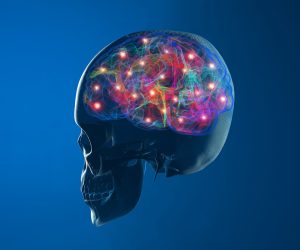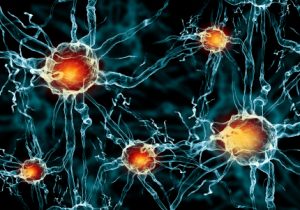The Impact of Neurotransmitters on Mental Health
Neurotransmitters play a crucial role in mental health, impacting mood, cognitive function, and overall well-being. Imbalances in neurotransmitters can lead to mental health disorders, including depression, anxiety, and schizophrenia. Understanding the modulation of neurotransmitters in psychiatric treatment is essential for addressing mental health challenges. This article explores the impact of neurotransmitters on mental health and the implications for treatment and well-being.

Key Takeaways
- Neurotransmitters significantly impact mental health, influencing mood, motivation, and overall well-being.
- Imbalances in dopamine and serotonin levels can lead to mood disorders such as depression and anxiety.
- Positive mental health practices, such as mindfulness and stress management, have neuroprotective effects through neurotransmitter release.
- Resilience and mental health are closely linked to the brain’s ability to adapt and recover from challenges, influenced by neuroplasticity and neurotransmitter activity.
- Antidepressants impact neurotransmitters like serotonin, norepinephrine, and dopamine, encouraging neuroplasticity and mood improvement.
Neurotransmitters and Their Role in Mental Health
Understanding Neurotransmitters
Neurotransmitters are chemical messengers in the brain responsible for transmitting signals between nerve cells. These chemical messengers play a crucial role in influencing various functions, including mood, motivation, and emotional responses. Two important neurotransmitters, dopamine and serotonin, are known to increase the chances of happiness and a sense of well-being. They enable communication between brain cells, affecting the overall mental state. In the context of mental health, understanding the role of neurotransmitters is essential for developing effective treatment strategies and improving overall well-being.
The Impact of Neurotransmitters on Mood Regulation
Neurotransmitters such as serotonin (5-HT), dopamine (DA), and noradrenalin (NE) play a crucial role in mood regulation, motivation, and emotional stability. Imbalances in the production of these neurotransmitters can lead to mood disorders, including depression and anxiety. When serotonin and dopamine levels are well-balanced, individuals are more likely to experience emotional stability, happiness, and satisfaction in their daily lives. However, low levels of dopamine can result in a lack of motivation, pleasure, and feelings of reward, while low serotonin levels can impact mood and emotional well-being. Understanding the dominance and deficit of neurotransmitters in the body is essential for maintaining overall health and well-being.
Neurotransmitters and Cognitive Function
Neurotransmitters play a crucial role in cognitive function, impacting memory, learning, and decision-making processes. The table below provides a summary of the cognitive functions influenced by key neurotransmitters:
| Neurotransmitter | Cognitive Function |
|---|---|
| Acetylcholine | Memory and learning |
| Serotonin | Mood regulation |
| Dopamine | Reward processing |
Understanding the intricate relationship between neurotransmitters and cognitive function is essential for comprehending the complexities of mental health and neurological disorders. It is imperative to acknowledge the multifaceted nature of neurotransmitter activity and its profound impact on cognitive processes.
Neurotransmitter Imbalance and Mental Health Disorders
The Link Between Neurotransmitter Imbalance and Depression
Recent research indicates that the disordered metabolism of neurotransmitters plays a significant role in the pathophysiological process of depression. Studies have specifically shown that three neurotransmitters – serotonin (5-HT), dopamine (DA), and noradrenalin (NE) – have a significant impact on the brain circuits involved in motivation, emotion regulation, cognitive performance, and psychological stress responses of Major Depressive Disorder (MDD). Dysfunction of neurotransmitter metabolism is associated with the severity of depression in first-diagnosed, drug-naïve depressed patients. It is reasonable to deduce that 5-HT dysregulation exists in the onset of MDD, while DA and NE are also abnormal. Additionally, research has discovered that the imbalance of tryptophan (TRP) metabolism is often present in patients with MDD.
Neurotransmitter Imbalance in Anxiety Disorders
Neurotransmitter imbalance in anxiety disorders is a complex phenomenon that involves the dysregulation of key neurotransmitters such as serotonin, dopamine, and norepinephrine. These neurotransmitters play a crucial role in modulating mood, emotional responses, and the body’s stress response system. The imbalance of these neurotransmitters can lead to heightened anxiety, panic attacks, and other symptoms associated with anxiety disorders.
To illustrate the impact of neurotransmitter imbalance in anxiety disorders, the following table presents the quantitative data on neurotransmitter levels in individuals with anxiety disorders compared to healthy individuals:
| Neurotransmitter | Anxiety Disorder | Healthy Individuals |
|---|---|---|
| Serotonin | Decreased | Normal |
| Dopamine | Fluctuating | Stable |
| Norepinephrine | Elevated | Normal |
It is important to note that neurotransmitter imbalance in anxiety disorders is a multifaceted issue that requires comprehensive assessment and personalized treatment approaches. Individuals with anxiety disorders may benefit from a combination of pharmacological interventions, psychotherapy, and lifestyle modifications to address the underlying neurotransmitter dysregulation.
Neurotransmitter modulation in anxiety disorders is a dynamic area of research, and ongoing studies are exploring novel therapeutic strategies to restore neurotransmitter balance and alleviate symptoms.
Neurotransmitter Dysfunction in Schizophrenia
Dysfunction of neurotransmitter metabolism is a critical factor in the severity of schizophrenia. The imbalance in the glutamine-glutamate-GABA cycle has been linked to elevated plasma γ-aminobutyrate/glutamate ratio, which may influence responses to antipsychotic treatment. This suggests a potential association between neurotransmitter dysfunction and the management of schizophrenia. Further research is needed to explore the implications of neurotransmitter imbalance in the pathophysiology of schizophrenia and its potential for targeted treatment strategies.
Neurotransmitter Modulation in Psychiatric Treatment
Pharmacological Modulation of Neurotransmitter Activity

The pharmacological modulation of neurotransmitter activity plays a crucial role in psychiatric treatment. It involves the targeted manipulation of neurotransmitter levels to achieve therapeutic effects while minimizing side effects. This modulation is often achieved through the use of pharmacological agents that interact with specific neurotransmitter receptors and pathways.
In addition, recent studies have focused on the quantification of tryptophan metabolites and neurotransmitters in the serum and brain of mice using LC-MS/MS-based techniques. These studies have provided valuable insights into the quantitative aspects of neurotransmitter activity and its potential implications for psychiatric treatment.
Furthermore, while direct measurement of neurotransmitter levels in the living brain is technically impractical and unethical, there is growing evidence supporting the synchronization of peripheral neurotransmitter levels with brain tissues or CSF levels. This synchronization has opened new avenues for exploring the mechanisms of mental health disorders, particularly in relation to neurotransmitter imbalances.
Neurotransmitter-Based Therapies for Mental Health Disorders
Neurotransmitter-based therapies for mental health disorders focus on restoring the balance of neurotransmitters in the brain to alleviate symptoms of various mental health conditions. These therapies often involve the use of pharmacological agents to target specific neurotransmitter systems and regulate their activity. Additionally, lifestyle modifications such as exercise, diet, and stress management are recommended to support the effectiveness of neurotransmitter-based therapies.
- Pharmacological agents target specific neurotransmitter systems
- Lifestyle modifications support the effectiveness of therapies
It is important to emphasize the holistic approach to mental health treatment, integrating both pharmacological and lifestyle interventions to address neurotransmitter imbalances effectively.
Challenges in Targeting Neurotransmitters for Treatment
The challenges in targeting neurotransmitters for treatment are multifaceted and complex. Precise modulation of neurotransmitter activity in the brain is a significant hurdle, as direct measurement of neurotransmitter levels in the living brain is technically impractical and unethical. However, there is increasing evidence supporting the synchronization of peripheral neurotransmitter levels with the brain tissues or CSF level. This presents an opportunity for indirect assessment and modulation of neurotransmitter activity.
To address these challenges, researchers have explored the role of neurotransmitters and their metabolites in mental health disorders, particularly Major Depressive Disorder (MDD). A preliminary investigation was conducted to assess the feasibility of using neurotransmitters as a tool for anticipating MDD, highlighting the potential clinical applications of this research.
In a cross-sectional study, 87 first-diagnosed, drug-naïve patients with depression and 50 healthy controls were included. The study focused on the levels and turnovers of various neurotransmitters, including glutamine, glutamic acid, GABA, kainate, VMA, MHPG, NE, HVA, and dihydroxy-phenyl acetic acid. This quantitative approach aimed to establish a link between neurotransmitters and MDD, paving the way for objective laboratory prediction of neurotransmitter involvement in MDD.
Neurotransmitter modulation plays a crucial role in psychiatric treatment, influencing mood, behavior, and mental health. Understanding the impact of neurotransmitters such as serotonin, dopamine, and norepinephrine is essential in developing effective treatment strategies for various psychiatric disorders. At the American Academy of Grief Counseling, we recognize the significance of neurotransmitter modulation in addressing grief-related mental health challenges. Our grief counseling certification programs provide comprehensive education on the intersection of neurotransmitter function and psychiatric treatment, empowering counselors to offer holistic support to individuals coping with grief and loss. Connect with us to explore our certified grief counselor courses and continuing education opportunities.
Conclusion
In conclusion, the impact of neurotransmitters on mental health is profound and multifaceted. Understanding the role of neurotransmitters is crucial for improving both mental and physical health, as they impact sleep, anxiety, concentration, and overall well-being. Imbalances in neurotransmitters like dopamine, norepinephrine, and adrenaline can affect mental abilities, mood, and the ability to react sensibly to aggression. Additionally, neurotransmitters like acetylcholine and serotonin not only affect the brain but also have a direct impact on the body, including memory, cognition, body movement, and bowel movement. Restoring and maintaining a healthy gut can have a significant impact on overall health, including reducing symptoms of depression and improving the functioning of the nervous system. Understanding the dominance and deficit of neurotransmitters in our bodies can have a significant impact on our overall health and well-being.

Please also review AIHCP’s Mental Health Certifications. The programs range from Grief Counseling to Stress Management to Crisis Intervention to Anger Management. There are multiple other topics that many licensed counselors, social workers, pastoral care givers would find useful in their work. The programs are online and independent study. Please review
Frequently Asked Questions
What are neurotransmitters and how do they impact mental health?
Neurotransmitters are chemical messengers in the brain that play a crucial role in regulating mood, motivation, and overall well-being. Imbalances in neurotransmitters can lead to mood disorders such as depression and anxiety.
Which neurotransmitters are associated with mental health disorders?
Dopamine and serotonin are two essential neurotransmitters associated with mental health disorders. Imbalances in their production can lead to mood disorders such as depression and anxiety.
How do neurotransmitters impact cognitive function?
Neurotransmitters like acetylcholine and serotonin not only affect the brain but also have a direct impact on cognitive function, memory, body movement, and bowel movement.
What is the link between neurotransmitter imbalance and depression?
Neurotransmitter imbalances, particularly low levels of dopamine and serotonin, are associated with depression. Low levels of these neurotransmitters can lead to a lack of motivation, pleasure, and feelings of reward.
How do antidepressants impact neurotransmitters?
Antidepressants adjust how the brain uses certain neurotransmitters, such as serotonin, norepinephrine, and sometimes dopamine, to improve mood and behavior. They can also encourage a process called neuroplasticity, which allows the brain to change its structure.
What role does neuroplasticity play in mental health?
Neuroplasticity, the brain’s capacity to reorganize itself, plays a pivotal role in resilience and the brain’s ability to adapt and recover from challenges. It allows the brain to change its structure by strengthening or weakening connections between neurons.
Can restoring and maintaining a healthy gut impact mental health?
Restoring and maintaining a healthy gut can have a significant impact on overall mental health, including reducing symptoms of depression and improving the functioning of the nervous system.
What challenges exist in targeting neurotransmitters for treatment?
Challenges in targeting neurotransmitters for treatment include the complexity of the brain’s chemical balance, individual variations in neurotransmitter levels, and the potential for side effects from pharmacological modulation.
Meta Description
Explore the impact of neurotransmitters on mental health, from their role in mood regulation and cognitive function to their link with mental health disorders and psychiatric treatment. Understand the neurobiology of resilience and the role of neurotransmitters in brain health.
Additional Resources
“Neurotransmitters”, Cleveland Clinic. (2022). Access here
“What Are Neurotransmitters?”. Cherry, K. (2023). Very Well Mind. Access here
“What are neurotransmitters?”. Berry, Jennifer. (2024). Medical News Today. Access here
“Neurotransmitters and Mental Health: Understanding the Impact”. Khaliq, R. (2023). Med Vidi. Access here
